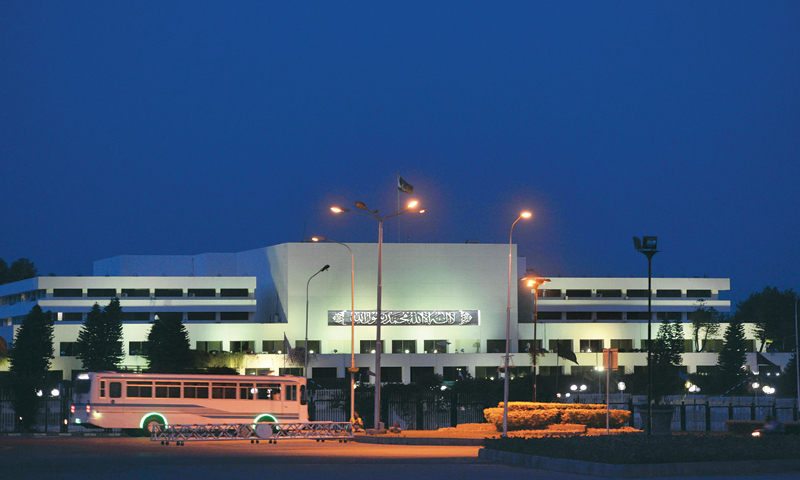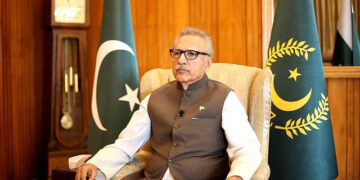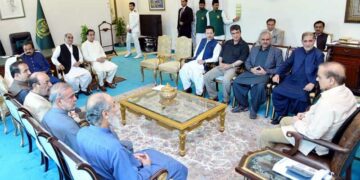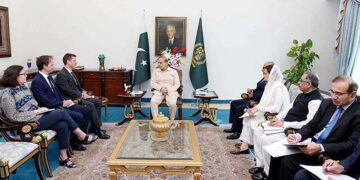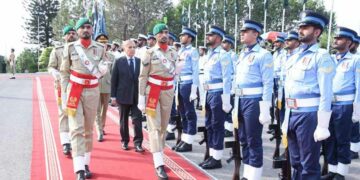The government has drafted an amendment bill to bring crucial changes to the Constitution in a bid to hold the upcoming elections to 52 Senate seats in a manner that will end the “undemocratic practice of horse-trading”.
[contentblock id=1 img=adsense.png]
Three new amendments are being considered to allow changes in existing procedures and rules for conducting election for senate seats. The proposed act will be called the Constitution (22nd Amendment) Act, 2015.
The draft law, a copy of which is available with Dawn, suggests that elections to the Senate will be held through open voting instead of the secret ballot that is currently in vogue. To hold elections through open balloting, an amendment has been proposed in Article 226 of the Constitution by inserting the word ‘Senate’. Under this article, all elections under the constitution are to be held through secret ballot, except for those for the office of prime minister and chief minister. This amendment will only exclude the Senate election from the purview of the secret ballot by making it equivalent to the process for electing PMs and CMs. However, separate amendments will be made in the existing rules and procedures to devise the actual balloting format. An official privy to the development told Dawn that amendments would also be made, through a presidential ordinance, in the Senate Election Bill, 1975. The official said that several proposals were being considered, such as the use of identifiable (numbered) ballot papers as well as mentioning the constituency no of a legislator on the ballot paper. Such measures will help to trace individuals who violate party advice. Moreover, the official said, the party will also issue written advice to members for prioritising their choices.
[contentblock id=2 img=gcb.png]
Barrister Zafarullah Khan, special assistant to the PM on Parliamentary Affairs, told Dawn that the proposed amendments would allow for an election through open ballot, but did not disclose the exact format the election would follow. He said that the amendments were doable and could be made “in a day”. He said the amendment could easily be passed by parliament once all political parties supported it. An all-parties conference has been called on Friday to garner support for the amendment. To penalise those involved in horse-trading, an amendment has been suggested to the disqualification criteria for a member of a parliamentary party on the grounds of defection. The amendment will be made in Article 63A, clause (1) paragraph (b) by adding a new sub-paragraph (iv) dealing with elections for the Senate. The disqualification clause over defection currently applies to members of a parliamentary party, who vote or abstain from voting in the House, contrary to directions issued by the parliamentary party to which he or she belongs. Currently, this defection clause only applies in elections for prime minister or chief minister; a vote of confidence, a money bill or a constitutional amendment. The proposed amendment is expected to allow this defection clause to apply to violation of party discipline in Senate elections as well.
[contentblock id=3 img=adsense.png]
Similarly, the bill also proposes amendments to Article 59 of the Constitution by substituting the word ‘elected’ with ‘chosen’. Barrister Khan said that this change had no significant meaning in terms of the election, calling it a “mostly procedural issue”. There is another amendment on the cards to make changes to the holding of elections for senators from Fata. Constitutional expert and senior counsel Salman Akram Raja told Dawn the amendments were possible and could be implemented by making the necessary changes in the existing rules and regulations. “It is not something that it cannot be designed,” he said. The National Assembly is scheduled to meet on March 4, only a day before elections for the Senate are scheduled to be held. Asked how the government could pass the bill in such short time, Barrister Zafarullah said the National Assembly session could be convened over the weekend (between Feb 28 and Mar 1) or the date for the election could be extended. “This is not an issue, what is important is the support of other political parties”, he said.


